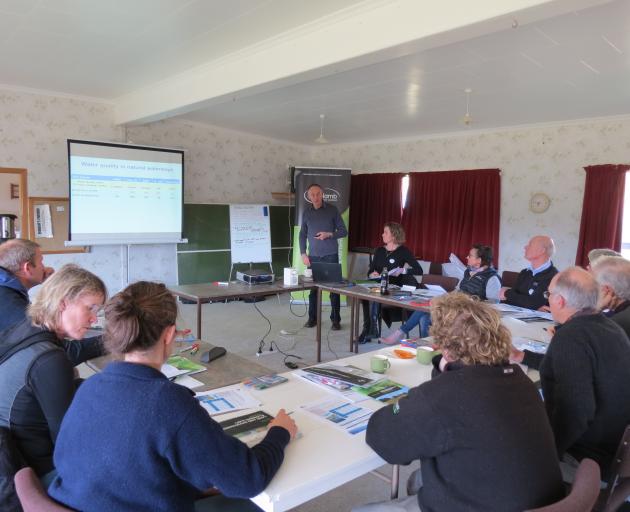
She and Judy Miller, a sheep and beef farmer from Heriot, ran a workshop in Millers Flat which attracted more than a dozen people.
She said the LEP workshop was run by BLNZ to help farmers meet national and export market standards, as well as requirements for the Resource Management Act.
BLNZ had developed its own LEP template, but other industry bodies also had their own and these were equally acceptable.
''Our goal is to have all our sheep and beef farmers on a plan by 2021,'' she said.
LEPs allow the farmers to identify areas on their properties that might require work to further enhance the environment or prevent or address issues that would be detrimental to it.
They were encouraged to look at issues including nutrient levels and losses, erosion, animal health and welfare, water quality, pugging and compaction risks and biosecurity issues.
Mrs Lake said she had been surprised to see how many older farmers were attending the workshops.
''You would think they would be more resistant to change but they can remember how the environment was before intensification happened,'' she said.
BLNZ had run the programme nationally for about five years.
''This year is the most [sessions] we have run and they are becoming more and more popular,'' she said.
She said each meeting was attended by 13 people on average and each person had similar expectations and questions.
''When we read the feedback they appreciate getting the basic knowledge.
''They go away with actions [to carry out] on their own farms.''
She found most farmers were already doing something on their properties in keeping with the LEP, such as soil testing.
''Farmers love their land and do not want to see it mistreated.
''They also do it for economic reasons and many already have good environmental practices, but some do need to take that extra step.''














